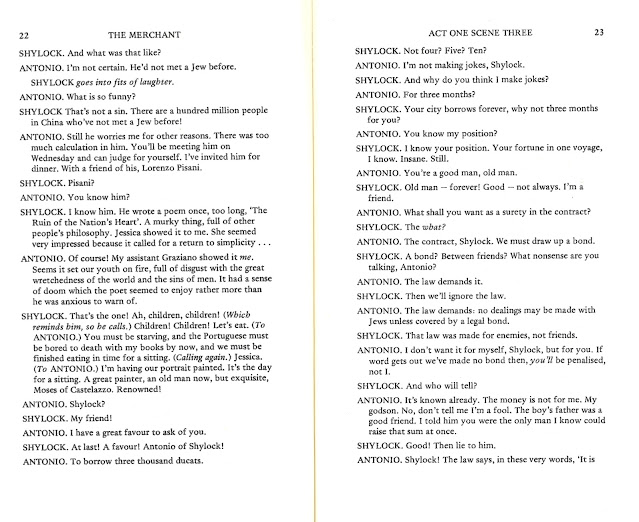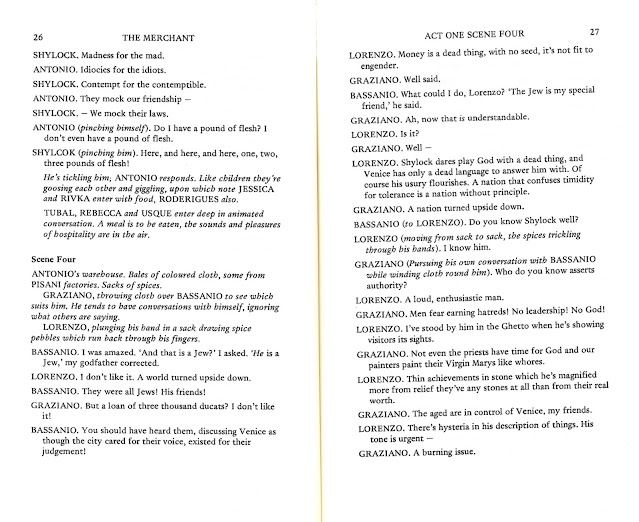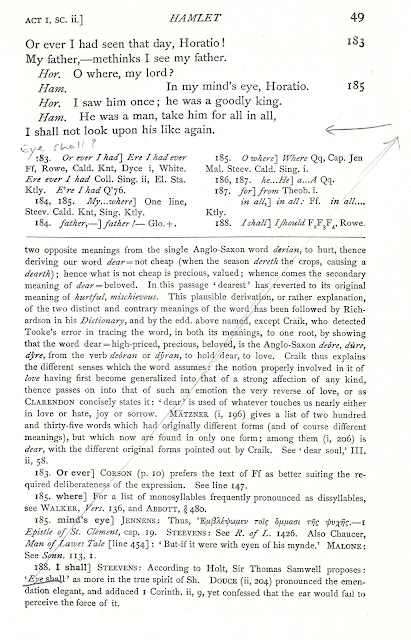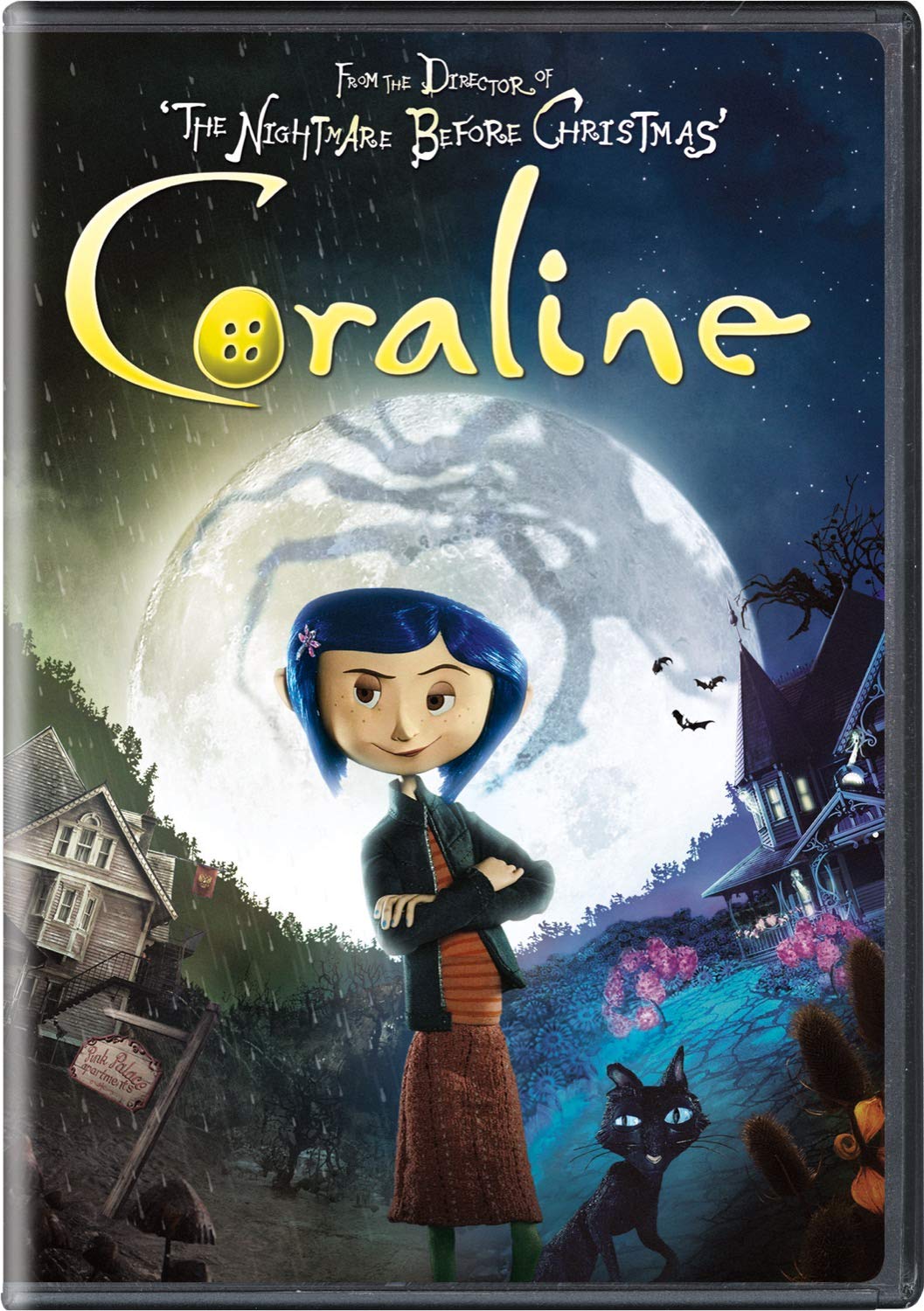Coraline. Dir. Henry Selick. Perf. Dakota Fanning, Teri Hatcher, and John Hodgman. 2009. DVD. Universal Pictures Home Entertainment, 2010.
Really, that should read "Characters in
Coraline quote from Hamlet's 'Piece of Work' Speech," but I was going to have to explain the differences between the three contemporary printings of
Hamlet and the way the film alters that quote, and that's too much for the title of a blog post.
It might be too much for the body of a blog post, too, but I'm going to do it anyway.
But not yet. Since you're here for the Shakespeare in
Coraline, we'll start there (if you need a plot summary, try
this Wikipedia entry). First, we get a couple of establishing moments that let us know that there's a Shakespeare festival in the town in one of the two worlds the film presents. Then, in the other world, we a treated to a trapeze performance that includes quotes (and / or misquotes) from
Hamlet:
You may be dismissed—or you can stick around for a bit more.
Here are the relevant passages in Q2 and F and Coraline (Q1 isn't absolutely relevant to this, but I'll include it below for interested parties):
Q1
What peece of worke is a man, how noble in reason, how infinit in faculties, in forme and moouing, how expresse and admirable in action, how like an Angell in apprehension, how like a God: the beautie of the world; the paragon of Annimales . . . .
Q2
What a piece of worke is a man! how Noble in Reason? how infinite in faculty? in forme and mouing how expresse and admirable? in Action, how like an Angel? in apprehension, how like a god? the beauty of the world, the Parragon of Animals . . . .
Coraline
What a piece of work is man! How noble in reason! How infinite in faculty. In form and moving, how express and admirable. In action like an angel. In apprehension, how like a god! The beauty of the world! The paragon of animals!
Q1 isn't relevant because it is essentially a CliffsNotes version, boiling down the much-longer speech to four lines:
Yes, faith, this great world you see contents me not,
No nor the spangled heauens, nor earth nor sea,
No nor Man that is so glorious a creature . . . .
The major differences are "man" instead of "a man" and "In action like an angel" instead of "In action, how like an angel." [The use of "a piece" instead of "peece" follows the Folio, which, in this case, standardized the form of expression.]
The question of whether and to what degree these are significance depends on the interpretation of the insertion of these lines in the film.
Why, in the creepy alternate world, do these alternate characters give this part (and only this part) of this speech? Frankly, I don't know. The expurgated speech delivered in the film celebrates the human being—coming dangerously close to blasphemy as it does so. Hamlet's full speech, though, brings us down from those heights to "and yet, to me, what is this quintessence of dust?" I interpret that omission as typical of the creepy alternate world—everything is lovely and wonderful and happy; no shadows of unhappiness or dissatisfaction can fall here.
That's my take. What's yours?
Links: The Film at IMDB.
Click below to purchase the film from amazon.com
(and to support Bardfilm as you do so).






























